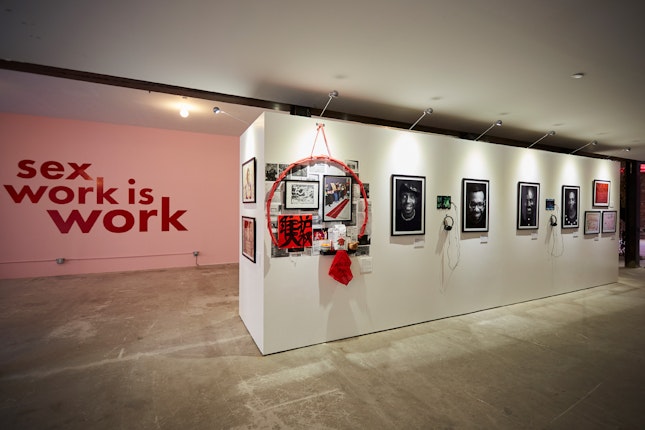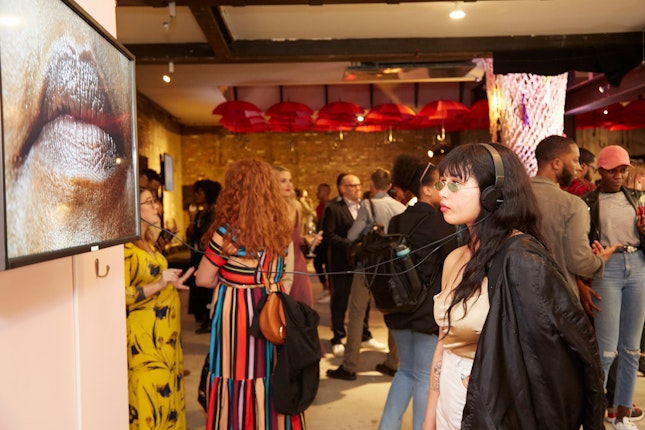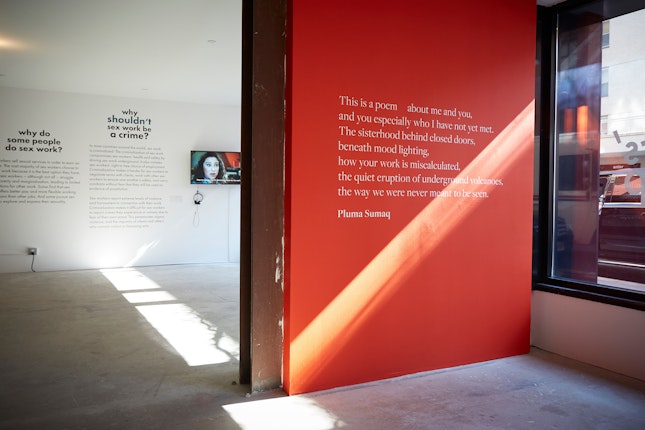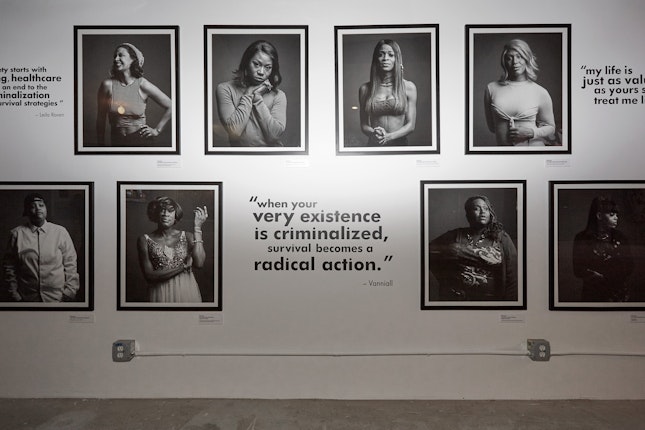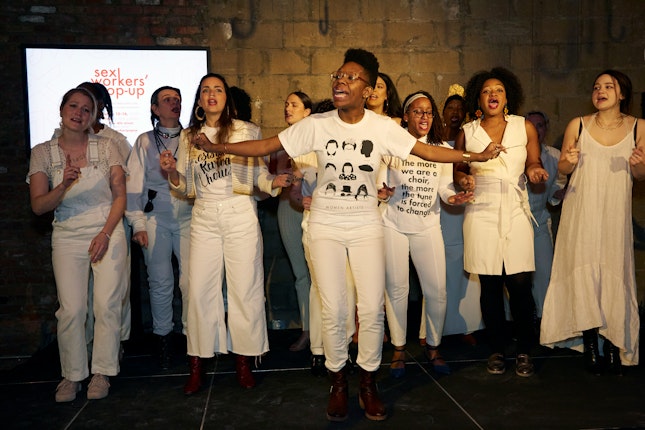A Museum for and by Sex Workers
By Aisha Akoshile
In March of 2020, a glass storefront facade barely contained the curiosity outside a new art exhibit in the historic New York City neighborhood of Greenwich Village. People passing by paused to look into the window display of the Sex Workers’ Pop-Up, where they saw a bed leaning against a pink wall, with a red sign proclaiming: “Sex work is work.”
The pop-up exhibit, which was sponsored by Open Society Foundations and co-designed with sex worker activists, featured 21 artists from 10 different countries. Visitors were given the opportunity to listen to artists—and sex workers themselves—about how they are advocating for labor protections and human rights.
Sex work is misunderstood, misrepresented, stigmatized, and still criminalized in most countries. There are diverse reasons why people do sex work around the world. Some pursue sex work because of poverty, marginalization, or a lack of other options to support themselves and their families. Others, meanwhile, do it because of the flexibility it can provide, or to explore and express their sexuality.
No matter the reason, consensual sex work should not be a crime. The criminalization of sex work denies sex workers the right to their body and labor, and compromises their health and safety. Often, criminalization punishes sex workers under the guise of rescuing them from abuse. Prisons do not rehabilitate; they are often sites of trauma and abuse for incarcerated people.
The exhibit featured a wide range of art—from still photography, to short films—and explored a broad variety of themes, from incarceration to labor rights. For example, the artist, comedian, and sex worker Jacq the Stripper’s cheeky, single-paneled comics poked fun at the hypocrisy of “whorephobia” and the behavior of many police officers; in Do You Suffer?, a law enforcement officer is shown coming to the “rescue” of a sex worker when, in fact, he has foiled her chance of paying rent.
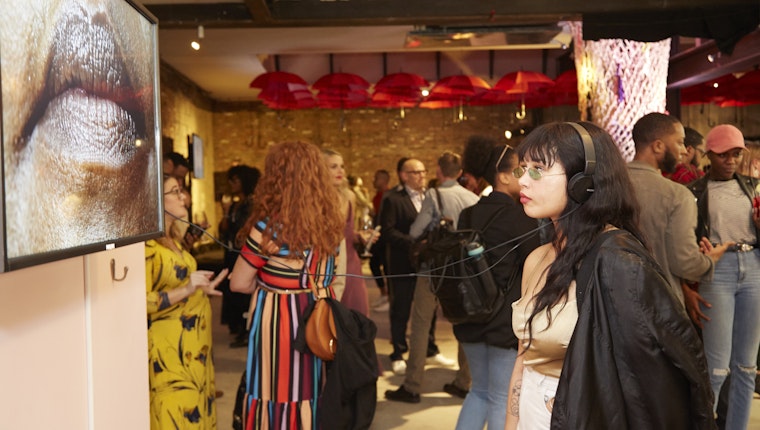
Sex workers know all too well that the criminalization of sex work falls hardest on the most marginalized in their communities. Trans sex workers, sex workers of color, immigrants, and people with disabilities are at greater risk of violence and exploitation. Marginalized workers experience police violence at higher rates because of the surveillance of their communities, the hyper-visibility of street-based workers, and widespread impunity. A tributary piece by Red Canary Song, entitled Mouth of the Coalmine, remembered the 2017 death of Yang Song, who has become a symbol of the New York Police Department’s history of violence against migrant massage parlor workers.
The exhibit also looked at how decriminalization models can create channels of justice and safety for sex workers. In most countries around the world, sex work is criminalized, compromising sex workers’ health and safety by driving sex work underground. It also violates sex workers’ right to free choice of employment, makes it harder for sex workers to negotiate terms with clients, work more safely with other sex workers, and carry condoms without fear that they will be used as evidence of prostitution.
This theme was explored in Empower Condom Police, an installation by Empower, a Thailand-based sex workers’ activist group. The piece mocked the irrationality of condoms-as-evidence practices, which law enforcement officials around the world use to profile people as sex workers, by patrolling the International AIDS Conference and “accosting” those who carried condoms. (This practice, of course, only discourages sex workers from carrying condoms—increasing their risks of contracting sexually transmitted infections or unplanned pregnancies.)
Art allows us to imagine new bonds in our community, by demanding we be more thoughtful. The Sex Workers’ Pop-Up challenged visitors to listen to the voices of sex workers, rethink how society defines work, and resist the current norm of criminalizing sex workers as a reformative or punitive tool.
The Sex Workers’ Pop-Up Museum was supported by the Open Society Foundations.
Until May 2021, Aisha Akoshile was a program administrative assistant at the Open Society Foundations.
